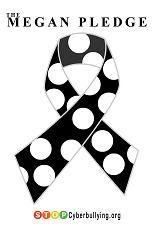Our private social skills "group" has hit a snag. I put the "group" in quotes, because until next week, it is only two kids- Joey and "Buddy." Next week, an old friend returns to our group, "Mr. Man." (I hope to have some more posts up with Mr. Man in them, because he and Joey have a very interesting relationship.) The two currently there were matched up by our OT, who works closely with them in a program called Social Thinking. They are learning about important things like body language, expected and unexpected responses, and how to tell when someone is talking to you, etc. etc. Buddy has some similar language patterns to Joey, but in some ways is more verbal, but in some ways far more inflexible. Both have difficulties with processing, and need a lot of external processing support and time. I was told this pair was a good match for the group, and Joey likes to go.
Over the two-week break, Joey informed me that he doesn't like Buddy. He was so clear about this that I decided the OT needed to know, to head off any problems.
You know you are about to have an interesting new conversation when you pull your OT aside after group, and say, "Miss L, Joey told me... he doesn't like Buddy..." and she cuts you off with a cheery, "Oh! Good!"
Often enough when we have Joey in groups, it can be very difficult for us to figure out exactly what Joey is getting from the other children. He seems to be modeling for the other kids, but not having much modeled for him. I know things are working because of the improvements we see, but I haven't figured out exactly why it works. What's in it for Joey?
IN our little pairsome, Joey is again the model. Joey is very good at learning the proper way to do things, and modeling that in controlled settings. Buddy is not. He needs the foil of Joey to work on how things are done right. Hence, he often makes "unexpected choices." Buddy does not respond in the ways JOey is being taught he should be responding. For example, if Buddy is sitting in the middle of the hall, and Joey wants to get by, we have taught him to politely ask, "Can you please move over so I can get by?" He then expects the response of the child moving aside so he can get by, because the other children have been taught that when someone asks you to move aside so they can get by, you move aside.
Buddy ignores him, and stay right where he is. Sometimes he may be playing a game in his head, and says something that seems arbitrary to Joey, like, "Pow! You lose a turn!" This is very confusing for Joey.
However, this is a common issue to think about in any social skills or anti-bullying campaign. You are being taught to react to situations in certain ways, do certain things, with the denouement being the bully starts being nice and everyone lives happily ever after. Right?
And yet we have all figured out it doesn't work that way. People do unexpected things. The bully keeps being mean. The co-worker keeps stealing your lunch. The neighbor keeps letting the dog bark. Mom still doesn't buy you the toy. Now what?
For the past three years, Joey has had in his IEP a goal to deal with bullying. It is an unfortunate truth that bullying will likely be a fact of life for Joey, and he needs to be specifically taught the coping skills most of us learn just by having to deal with jerks all the time. What do you do when you do everything right, and the situation is still wrong? Or unexpected?
This is one of the things Joey has been discovering and learning in group this year. How do you deal with the anti-social behaviors of others? If people make you feel uncomfortable, what is the appropriate and expected way to respond? What is a proper way to resolve an unexpected issue or response? Buddy stays put; Joey has to learn how to step around him, and perhaps go do something else. When Buddy says something that seems not to make sense, Joey is learning how to respond. When Buddy isn't nice to him, Joey is learning what to do. He is learning that not everyone in a class or group is a friend, and that it is OK that not everyone you meet, or who is in your classroom, is not your friend. You don't have to be friends with everybody. People who treat you in mean ways are not friends, and you do not need or want to be friends with them. He is learning to deal with people who are not friends, without being rude or unexpected- and how to be safe in dealing with people who are not your friends.
These are skills the school keeps saying they can't teach Joey because "no one bullies him."
I call hockey pucks.
Wednesday, January 09, 2013
Monday, January 07, 2013
Call a lawyer
I've been in this special ed gig for 8 years now. I've gone to good meetings, nasty meetings, confusing meetings. I've spent weeks putting together presentations, binders, handouts, and data graphs. I've sifted through evals in techspeak, observation reports that have some or no observations, and IEP goals that are measurable and unmeasurable. I have fought, planned, co-operated, held my ground, given ground, compromised, and even thrown a hissy fit.
I am not an OT, a PT, an SLP, a neurologist, a developmental specialist, or a special educator. I am an art historian. And educated person, but not an expert at this.
Our back-up plan, like so many other special ed parents wrestling with an uncooperative and ill-funded system, is that great mantra, "Call the lawyer!" There lies the secret weapon, the person who can come in, look over all the mistakes you have made, and tell you to do next- or if the next step involves, say, the lawyer.
This is such an ingrained mantra that we have taken up Wrightslaw as a banner, reading the books, going to the workshops, making sure we were ready, making sure we had done all we could do before... well, calling the lawyer.
This morning, I called the lawyer.
When your back-up mantra is "call the lawyer", you also recognize that calling the lawyer is an admission of defeat. That despite trying to be an expert at the system, trying to keep the ducks in a row, trying to advocate for your child as best you can, something is terribly wrong. The question is, "what am I doing wrong? And how do I fix it?"
And so you call to make an appointment with a lawyer.
Sounds idyllic, yes? Well, what no one tells you is what happens when you make that call.
See, when you call, apparently you have to be ready, like a lawyer yourself. You have to know exactly what is wrong and exactly why you want to speak to the lawyer. "Something is wrong" won't even get you past the receptionist. Even, "this meeting went badly and I don't think what they gave me is appropriate" isn't enough.
Seriously, I never got past the receptionist, who kept interrupting me to say, "I don't understand why you want to see a lawyer."
We've had a blow, folks. The back-up plan just told us they don't know why they should help us or have our back.
I am not an OT, a PT, an SLP, a neurologist, a developmental specialist, or a special educator. I am an art historian. And educated person, but not an expert at this.
Our back-up plan, like so many other special ed parents wrestling with an uncooperative and ill-funded system, is that great mantra, "Call the lawyer!" There lies the secret weapon, the person who can come in, look over all the mistakes you have made, and tell you to do next- or if the next step involves, say, the lawyer.
This is such an ingrained mantra that we have taken up Wrightslaw as a banner, reading the books, going to the workshops, making sure we were ready, making sure we had done all we could do before... well, calling the lawyer.
This morning, I called the lawyer.
When your back-up mantra is "call the lawyer", you also recognize that calling the lawyer is an admission of defeat. That despite trying to be an expert at the system, trying to keep the ducks in a row, trying to advocate for your child as best you can, something is terribly wrong. The question is, "what am I doing wrong? And how do I fix it?"
And so you call to make an appointment with a lawyer.
Sounds idyllic, yes? Well, what no one tells you is what happens when you make that call.
See, when you call, apparently you have to be ready, like a lawyer yourself. You have to know exactly what is wrong and exactly why you want to speak to the lawyer. "Something is wrong" won't even get you past the receptionist. Even, "this meeting went badly and I don't think what they gave me is appropriate" isn't enough.
Seriously, I never got past the receptionist, who kept interrupting me to say, "I don't understand why you want to see a lawyer."
We've had a blow, folks. The back-up plan just told us they don't know why they should help us or have our back.
Sunday, January 06, 2013
Just the Truth: When Life's Journey is Unexpected
There is an article bouncing around social interwebs which claims to take a bald-faced look at the "truth" of having a child with autism. That "truth," according to the article, is that having a child with autism destroys your life.
It is the most horrible article I have ever read in my life.
For one, it is not the truth. It is the opinion of a person watching a family with an autistic child (not even their own child), noting how the parents had to give up their careers and have no one to help them but a set of retired parents- who are now at odds with each other, because Grandpa resents having to spend his retirement money on his grandchild. I will spare you both the details and the article. It is a waste of valuable time and will just skyrocket your blood pressure.
No, raising a child with special needs is not easy. It is very different from raising a child without special needs, because most people understand and know what to expect in raising a child without special needs. We spend a lot more time in "therapies", rather than "extra-curriculars." We know fancy words such as "propioceptive input" and "pathologic encephaly." We understand plenty of weird acronyms, such as "IEP" and "BIP" and "FAPE".
I still watch the kids at the park and think "wow, that kid needs some OT."
My life is not what I had thought about and planned for. It is, in fact, very, very different. No, I do not have a full-time job, but a string of part-time gigs and contract work. My husband and I go out by ourselves about twice a year, though we have finally found someone we could use for babysitting (an aide with our OT office does babysitting on the side, and is awesome with our guys). Up until now, it was Grandma or else we stay home. Sometimes, that is how life goes. Not as planned.
Does that mean my life is "destroyed"?
My life is different. I don't know many people now without special needs kids, so I am not quite sure how different. For us, this is normal. To go on a trip, you don't just get in the car and go. You have back-up plans in case the trip doesn't work. You pack familiar items, even for a day trip. We are in love with Steve Jobs and Apple for making our lives so much easier. Did you know there are some really awesome apps to help kids with pincer grips and eye-hand coordination and... wait, am I off topic?
Do I sometimes feel sad about not having a full-time gig in a nice little college somewhere and running off to India with my family every couple of years? Well, yes. It was a nice dream. But that's not how life worked. And I will get him to India. It just needs a lot more planning, and won't be happening very soon. However, I did manage to get my passport updated last year. Just in case.
Yes, my life is different, and it changed our plans and dreams and ideas of the future. But we will never say we no longer have one. We have a life, and it is an awesome adventure of a life. We will work through the challenges- just like everybody else. It has ups and downs; even if the downs dip a little lower, the ups rise a little higher. Or perhaps, they just dip and fly at different moments, for different reasons. Life is more unexpected in many ways.
But you know what? Different is not demolished. Unexpected is not always bad. And like Bilbo Baggins, I'll never be the same... but I'll have plenty of good stories to tell.
It is the most horrible article I have ever read in my life.
For one, it is not the truth. It is the opinion of a person watching a family with an autistic child (not even their own child), noting how the parents had to give up their careers and have no one to help them but a set of retired parents- who are now at odds with each other, because Grandpa resents having to spend his retirement money on his grandchild. I will spare you both the details and the article. It is a waste of valuable time and will just skyrocket your blood pressure.
No, raising a child with special needs is not easy. It is very different from raising a child without special needs, because most people understand and know what to expect in raising a child without special needs. We spend a lot more time in "therapies", rather than "extra-curriculars." We know fancy words such as "propioceptive input" and "pathologic encephaly." We understand plenty of weird acronyms, such as "IEP" and "BIP" and "FAPE".
I still watch the kids at the park and think "wow, that kid needs some OT."
My life is not what I had thought about and planned for. It is, in fact, very, very different. No, I do not have a full-time job, but a string of part-time gigs and contract work. My husband and I go out by ourselves about twice a year, though we have finally found someone we could use for babysitting (an aide with our OT office does babysitting on the side, and is awesome with our guys). Up until now, it was Grandma or else we stay home. Sometimes, that is how life goes. Not as planned.
Does that mean my life is "destroyed"?
My life is different. I don't know many people now without special needs kids, so I am not quite sure how different. For us, this is normal. To go on a trip, you don't just get in the car and go. You have back-up plans in case the trip doesn't work. You pack familiar items, even for a day trip. We are in love with Steve Jobs and Apple for making our lives so much easier. Did you know there are some really awesome apps to help kids with pincer grips and eye-hand coordination and... wait, am I off topic?
Do I sometimes feel sad about not having a full-time gig in a nice little college somewhere and running off to India with my family every couple of years? Well, yes. It was a nice dream. But that's not how life worked. And I will get him to India. It just needs a lot more planning, and won't be happening very soon. However, I did manage to get my passport updated last year. Just in case.
Yes, my life is different, and it changed our plans and dreams and ideas of the future. But we will never say we no longer have one. We have a life, and it is an awesome adventure of a life. We will work through the challenges- just like everybody else. It has ups and downs; even if the downs dip a little lower, the ups rise a little higher. Or perhaps, they just dip and fly at different moments, for different reasons. Life is more unexpected in many ways.
But you know what? Different is not demolished. Unexpected is not always bad. And like Bilbo Baggins, I'll never be the same... but I'll have plenty of good stories to tell.
Subscribe to:
Comments (Atom)



















